 Petzlover
PetzloverGoldador is originated from United States but Hawaiian Poi Dog is originated from Indonesia. Goldador may grow 23 cm / 10 inches higher than Hawaiian Poi Dog. Goldador may weigh 21 kg / 47 pounds more than Hawaiian Poi Dog. Goldador may live 7 years more than Hawaiian Poi Dog. Goldador may have more litter size than Hawaiian Poi Dog. Both Goldador and Hawaiian Poi Dog requires Low Maintenance.
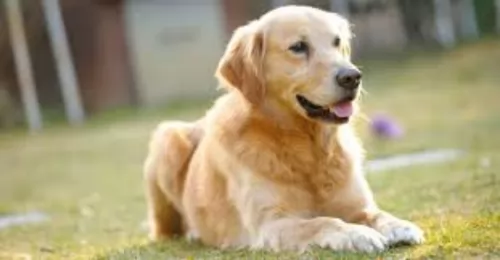 Introduced as a designer dog, the Goldador is beautiful – a mix between Golden Retrievers and Labrador Retrievers, two of the most popular dog breeds in the world.
Introduced as a designer dog, the Goldador is beautiful – a mix between Golden Retrievers and Labrador Retrievers, two of the most popular dog breeds in the world.
The dog was specifically bred to be an excellent working dog, and in fact today he makes the most wonderful guide-, rescue- and therapy dog.
Known also as Golden Labradors, the Goldador is a dog that has many capabilities, one of which is to make a wonderful family pet. As a designer breed, the dog isn’t recognized as a standardized breed by any of the major kennel clubs.
The Hawaiian Poi Dog was a descendent of the dogs brought to the Islands by the Polynesian. These Polynesian dogs were themselves descendants of the kuri dog of New Zealand. These kuri dogs were originally from Indonesia. The Hawaiian Poi dog is now extinct but at one time was considered the spiritual protector of Hawaiian children and also used as food by hungry Native Hawaiians.
The dog was called poi which was the word for a food staple mad from the root of Taro and used to put weight on the dogs before they were eaten. Meat was not fed to the dogs because it was too scarce. There was no large mammals to hunt and so the breed was never given a standard. The Poi dog seen by European explorers were short legged, pot bellied canines that lived with the hogs in the towns. Because of what they ate, the dogs were not highly intelligent but were stubborn and hard to train. Because the dogs were not suited for much beyond food and a spiritual charm, they became extinct when the traditional religion was no longer practiced and eating dogs was no longer acceptable. The breed pretty much disappeared by the early 20th century. Very few images of the dogs remain except for ancient petroglyphs.
There was an attempt by the Honolulu Zoo in the late 1960’s to redevelop the breed using local dogs to determine a standard. Then the local dogs were bred as close to the standard as possible. In the third generation one dog was born with the traits of a Poi dog. There was not much more success with this and then the Polynesian ship travel between Tahiti and Hawaii was recreated and a dog taken along.
Today’s mixed breed dogs in Hawaii are called Poi dogs but also have the stubbornness, unique appearance and ability to eat anything it is given like the original Poi. The dogs are small, and should not be confused with the original Poi dogs.
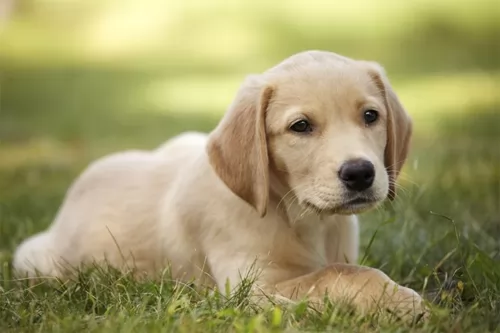 The Goldador is a large muscular dog standing at between 56 – 61cm in height at the withers and weighing between 27 – 36kg in weight.
The Goldador is a large muscular dog standing at between 56 – 61cm in height at the withers and weighing between 27 – 36kg in weight.
His double coat is short and smooth but in can also be longer. It comes in shades of gold or yellow with hints of red, but it can be liver or black too. Goldadors are well-balanced dogs, and just the look in their kind brown eyes makes you realize that this beautiful dog can make a wonderful pet.
He has a well proportioned head with medium length floppy ears, a black nose and a long tail.
Loving, intelligent, loyal and playful, the Goldador is the kind of dog that gets on well with everyone. It’s why he isn’t a particularly good watchdog as he is just too friendly with strangers. You have to be careful though – his rambunctious nature, his energy and playfulness can see him being a bit rough around small children or the elderly. It is why socialization and training are so important for him as then he becomes obedient and more relaxed around everyone.
He loves his human family and never wants to be left on his own for too long. Intelligent and alert, he is an easy dog to train as he makes it easier by being a dog that wants to please.
As previously mentioned the Poi dog is somewhat unusual in size and shape due to what they ate. They looked somewhat like the native dogs of Polynesia and New Zealand. They have short legs, long bodies, somewhat obese and a very flat head. He had a short smooth coat, in any color or any pattern. They were however mostly brown and they might or might not have white markings.
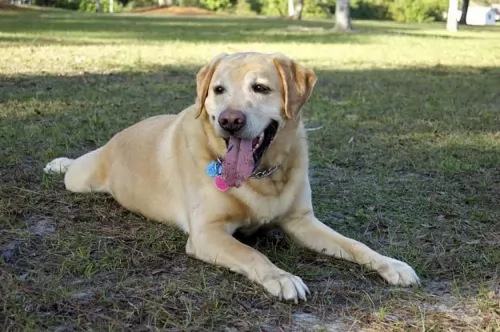 Goldadors are intelligent dogs and they’ve been used extensively for guide- and therapy dogs, loving to be useful and busy. Its the kind of dog that thrives in a loving, active family – one that counts him in as a family member.
Goldadors are intelligent dogs and they’ve been used extensively for guide- and therapy dogs, loving to be useful and busy. Its the kind of dog that thrives in a loving, active family – one that counts him in as a family member.
He makes an exceptional family pet and companion and you can rely on him to be a loyal, loving pet.It’s why the Goldador is becoming such a sought after pet – he simply ticks all the right boxes.
The Hawaiian Poi dog was very friendly and good with children
The Poi was considered a good luck charm and a spiritual protector of children
Given what they faced in life, the Poi dog was very adaptable, living anywhere on the islands and eating anything it could find.
Due to their poor diet, the Hawaiian Poi dog was seriously lacking in intelligence and learning ability.
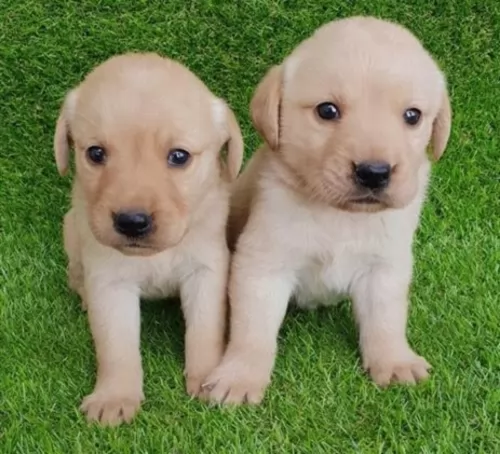 Goldadors luckily don’t have many health issues, and as a hybrid, he has fewer health issues than pure breds.
Goldadors luckily don’t have many health issues, and as a hybrid, he has fewer health issues than pure breds.
You can say with confidence that a nutritious diet, regular exercise, good grooming, lots of love and attention and visits to the vet if your pet is ill are key aspects for maintaining good health.
There are always going to be some common health problems that your Goldie could get -
You’ll need to be checking your Labrador Retriever's floppy ears. They don’t get as much air in them as a dog with erect ears. A dog like the Goldador with floppy ears will need to have his ears cleaned for bacteria. Be very careful how you clean your pet’s ears as you can damage them if you probe too deeply.
Did you know that by spaying or neutering your Goldador can save them from getting some serious illnesses later on? Speak to your vet about it when your pet reaches 9 months to a year of age.
Goldadors can easily put on weight if they aren’t given enough daily exercise to burn off the calories. Some put on weight after being spayed or neutered and it's important to watch their weight after these procedures. Being overweight puts a lot of extra strain on a dog’s internal organs.
Probably due to its diet, the Poi dog had several problems to their health. Their poor diet led to a sluggishness both in movement and intelligence. Its development was hampered by a lack of protein. Malnutrition and serious over inbreeding caused a weakness and poor oral hygiene. Due to this lack of teeth and chewing the bones in the dogs heads became flat. The Poi had breathing issues and overall lethargy.
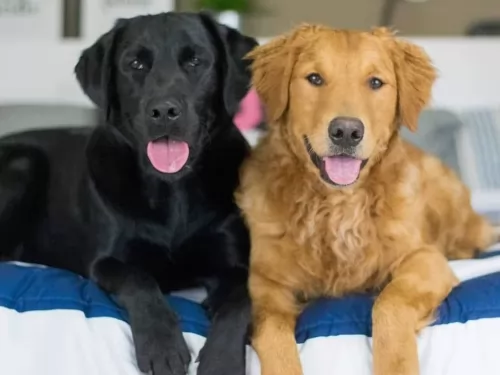 Goom your Goldador regularly. He can either have short- or long hair, but he is a fairly low maintenance dog so a good brush twice a week to remove loose hairs will be good for him.
Goom your Goldador regularly. He can either have short- or long hair, but he is a fairly low maintenance dog so a good brush twice a week to remove loose hairs will be good for him.
Diet is everything, and by giving your Goldador nutritional food, you can actually lengthen his life. If you’re going to be giving him commercially manufactured food, follow the feeding guidelines on the packaging. Remember there are foods that cater specifically for a dogs age and his energy levels.
Try and give him some home-made food from time to time such as cooked rice, vegetables and chicken as well as some raw meat occasionally as this can ensure his skin and coat remain healthy.
Always provide plenty of cool, fresh water, especially seeing that he will be thirsty after a long walk or other exercise. Dehydration in a dog can be fatal.
Provide your Goldador with a warm, dry place to sleep. Make sure that it offers shelter from the sun and rain and also provides shade.
With meat being rare in Hawaii, none was available for the dogs. They were fed Poi – from the Taro plant roots. Puppies were fed 2-3 times a day.
The adult dog was fed once or twice a day the same as Poi puppies were fed.
The Hawaiian Poi dog basically has not good health points.
The Poi dog did not need and did not get much exercise, leading to its demise.